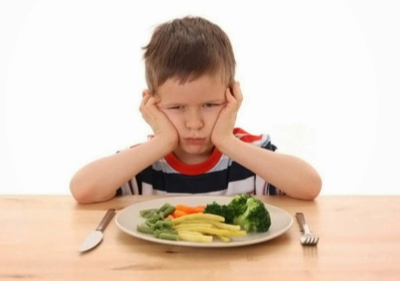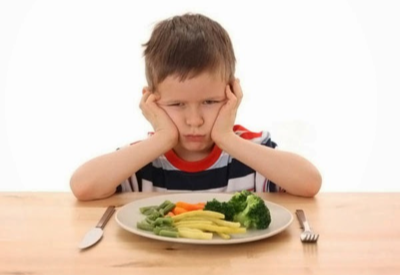Invalidating a kid?s feelings towards foods isn?t nice or helpful.

I was introduced to the saying ?don?t yuck my yum? during a brief stint volunteering with a local non-profit conducting an after-school gardening program. During our training, the lady in charge of the program told us ?don?t yuck my yum? should be one of our class rules. Not only were the kids to be taught the phrase, they were to be instructed to taste every food they were presented with at least three times before deciding they didn?t like it.
?Don?t yuck my yum? sounds cute, but the approach is wrongheaded.
The idea made me cringe, but I went along with it thinking that I don?t know everything and maybe I should reserve judgement on this issue. After further consideration, I regret my silence and capitulation.
Sure enough, during the second class one unfortunate student expressed her opinion out loud about tomatoes, describing them as ?yucky.? She was immediately reminded, in front of the whole class, not to yuck anyone?s yum and demanded to give the tomatoes three tastes. I?ll never forget the look of disgust on her face as she was forced to taste a tomato three times while the rest of the class looked on. I doubt that child is a tomato fan after her experience. I wonder if she?ll ever voluntarily try a tomato again in her life.
Every child?s feelings toward a food are valid, not just the kids who like the food.
What are we telling kids when we insist on a ?don?t yuck my yum? policy?
- Your feelings and preferences are not valid, unless you agree with me
- Your natural judgement about eating cannot be trusted and must be overridden
- Your eating must conform to a group standard determined by an authority figure
- You must submit to putting something in your mouth even when you find it repulsive
Does any of this sound healthy or helpful?
Registered Dietitian and Psychotherapist Ellyn Satter advises parents to adhere to a Division of Responsibility in Feeding which all adults providing food to children and adolescents should adopt. Her approach is considered a best practice by The Academy of Nutrition and Dietetics, the American Academy of Pediatrics, the Expert Committee on Childhood Obesity, Head Start, WIC, and the USDA (see here).
Satter?s Division of Responsibility in Feeding (sDOR) in a nutshell:
- As a caretaker providing food to a kid, you are responsible to decide the WHAT, WHEN, and WHERE of feeding
- Let the child decide HOW MUCH and WHETHER to eat
If your concern when a child says ?yuck? is table manners, then teach her a more polite way to communicate she doesn?t want to eat a food. For example:
- ?I would rather not try this today, thank you?
- ?This is more _____ than I like? (salty, spicy, slimy, mushy, fill in the blank)
If your concern is that other children will not eat the food after hearing another say ?yuck,? then handle that by explaining that you like the food and why. For example:
- ?When I was younger, I also didn?t want to try tomatoes. One day I did try them and found out I like their tangy flavor.?
- ?Everyone has their own food preferences. I like tomatoes because they are slightly zesty, juicy, and a pretty red color.?
?Don?t yuck my yum? is not congruent with the best practice of sDOR and is just a bad policy. Demanding a child eat a food they find repulsive seems abusive. Let?s make eating an enjoyable experience for kids both at home and away from home by honoring their feelings and giving them room to try new foods naturally, in their own time, without external pressure or shaming.


